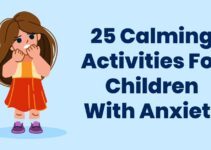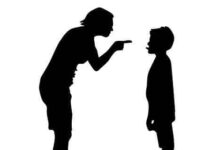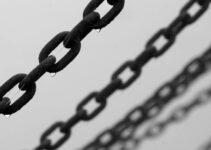Does my child have anxiety? Maybe
The most common child and adolescent psychological disorders are anxiety disorders.
Most, if not all children, experience various stages of anxiety throughout their lives – from the second they are born until they reach adulthood – and beyond. Even newborns, fresh out of their mothers’ wombs experience anxiety.
Why? Well, mainly because of their lack of experience and inability to communicate properly with caretakers. And while in some situations it’s fairly easy to tell if a child is experiencing anxiety (i.e. hysterical crying, constant worry, clinginess, and fear), other times it is quite difficult to not only recognize the signs and symptoms, but also differentiate it from “normal” child and adolescent moodiness, “aches and pains,” and personality quirks.
To make things even more challenging, in some situations a child’s anxiety may involve environmental stressors, such as growing up in a home where one or both parents are depressed or anxious or where someone is chronically ill or disabled. In these situations it can be extremely tricky for parents to recognize and address their child’s emotional distress.
Remember, worry and fear in moderation are healthy. It’s normal to experience anxiety during childhood, so it should be expected during various stages of development. For instance, a child may be afraid of strangers, being away from loved ones, afraid of being in the dark, or seeing lightning flashes during thunderstorms. Or, she may be afraid of dogs or loud noises.
The good news is that for most children these fears and worries fade out over time and lose their luster as the child ages. So in these cases there’s no need to do anything but wait out the various stages. However, if these symptoms appear to be getting worse or they have begun to increase in frequency, so much so that they are affecting your child’s development or daily function, it’s probably time for him to see a pediatrician to rule out an anxiety disorder.
These behaviors only become a problem when it affects your child’s ability to function properly at home and at school. But, how can I tell if my child is exhibiting anxiety symptoms? Well, you are in luck because the checklist below can help you decide if your child’s behaviors are truly indicative of anxiety.
Note: According to the DSM-5, child anxiety can be diagnosed if a child up to 16-years-old exhibits at least six symptoms of anxiety, or if an adolescent 17-years-old or older displays five or more symptoms of constant and excessive worries and fears, most days, for at least six months. In addition, the child must have a difficult time controlling her worries and fears.
My child…
Physical Signs of Anxiety
- Tends to complain of aches and pains (headaches, stomachaches, heart palpitations, muscle aches, chest tightness and pain, constant fatigue, etc.) even though there’s no medical reason for them
- Regularly forgets or misplaces things or lacks concentration and focus
- Is an over-or under-eater
- Has chronic gastrointestinal distress (nausea, vomiting, diarrhea, abdominal pain, or constipation)
- Has a chronic dry mouth
- Has an accelerated heart rate or pulse
- Regularly experiences dizziness or numbness in her limbs
- Refuses to use the restroom in public (in school, at the mall or restaurant, etc.)
- Tends to be restless, careless, fidgety, hyperactive, or distracted most of the time
- Trembles, shake, or sweats like crazy during overwhelming and stressful situations
- Has a habit of constantly tensing his muscles
- Regularly has a problem falling or staying asleep at night
Emotional Signs of Anxiety
- Cries at the drop of a hat
- Is extremely sensitive
- Often becomes grouchy, irritable, frustrated, or angry without reason
- Is terrified of making even simple mistakes
- Suffers from severe test anxiety
- Has chronic panic attacks
- Has intense phobias (about dogs, bees, dirtiness, darkness, etc.) or exaggerated fears (a natural catastrophe is about to happen)
- Is afraid others (other kids) will find out about her learning and attention issues
- Is extremely worried about things that could happen in the future (for example, entering high school when he is only in 4th grade)
- Becomes fearful when dropped off at daycare, school, or a relative’s house
- Has recurrent nightmares about losing a parent, pet, or loved one
- Tends to have obsessive thoughts or compulsive behaviors (constantly getting up and down from her chair, finger-tapping, excessive talking, hand-washing, etc.)
- Has frequent meltdowns, fits, outbursts, and tantrums
- Constant harps on things that happened in the past
- Has severe anger/rage issues
Behavioral Signs of Anxiety
- Tends to ask “what if?” a lot (“What if our house catches on fire?”)
- Regularly avoids participating in classroom activities (circle time, recess/P.E., storytime, etc.)
- Usually remains silent or pretends to be preoccupied when expected to work with others
- Regularly fights going to daycare or school
- Prefers to stay by herself, during lunch, recess, or P.E.
- Tries to avoid social situations after school or on weekends (birthday parties, etc.)
- Is a procrastinator
- Is a perfectionist
- Tends to become highly aggressive when things don’t go his way
- Refuses to speak to classmates or strangers in stores or restaurants, even when they are being friendly
- Becomes extremely emotional or angry when separated from loved ones
- Constantly seeks approval from parents, friends, teachers, or even strangers
- Tends to say, “I can’t do that!” a lot, without reason
- Has a habit of withdrawing from people, activities, or family interactions
- Is oppositional and defiant on a regular basis
- Is extremely clingy
If you’re concerned that your child may have an anxiety disorder, check off her symptoms on this list and print it for future reference. Then, refer to it when talking with your child’s pediatrician about what you have been seeing.










